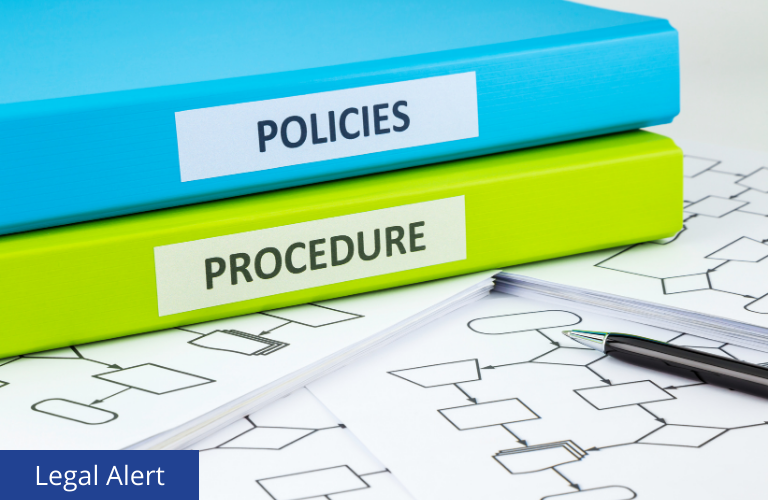
On August 2, 2023, the National Labor Relations Board (“NLRB”) issued its decision in the much-watched Stericycle Inc. and Teamsters 628 case, returning to a case-by-case standard for evaluating challenges to employer-promulgated policies (for both union and non-union employees), and overturning a prior more employer-friendly standard that employed a balancing test to categorize policies into three groups.
On September 4, 2020, the Administrative Law Judge (“ALJ”) determined policies in Stericycle’s employee handbook pertaining to personal conduct, conflicts of interest, and confidentiality of harassment complaints were overbroad and dissuaded an employee from engaging in protective activity, in violation of Section 8(a)(1) of the National Labor Relations Act (“NLRA”) based on the NLRB’s 2017 standard established by Boeing Co., 365 NLRB No. 154 (2017) and revised in LA Specialty Produce Co., 368 NLRB No. 93 (2019). On August 2, 2023, the NLRB affirmed the ALJ’s decision and overturned the standard for evaluating challenges to employer handbook policies.
The Boeing Standard
In Boeing, the NLRB established a standard for evaluating employer policies that balanced the weight of an employment policy’s potential impact on an employee’s NLRA rights with an employer’s legitimate business interest in maintaining the policy. In Boeing, the NLRB ultimately upheld the employer’s “no-camera” policy, finding that the employer’s business interest outweighed the “comparatively slight” impact on employees’ NLRA rights. The NLRB outlined three categories of policies: 1) always lawful policies, 2) sometimes lawful policies, and 3) always unlawful policies and determined the “no-camera” policy fell into the first (always lawful) category.
The dissent in Boeing contended that the standard improperly advantaged employer’s business interests over an employee’s rights, highlighting that employees must be cautious about violating any employment policy (even a vague one) because they are typically economically dependent on their employer. The Boeing decision was a departure from the NLRB’s previous standard for evaluating employer policies, pursuant to Lutheran Heritage Village-Livonia, 343 NLRB 646 (2004).
The Lutheran Heritage Standard
The Board’s previous standard for evaluating employer policies was set forth in Lutheran Heritage Village-Livonia and provided that employer policies should be evaluated on a case-by-case basis. Those employer policies that were not explicitly restrictive of employee rights would be subject to three inquiries: 1) whether an employee could reasonably interpret the policy as one prohibiting activity that is protected under the NLRA, 2) whether the policy was created in response to union activity, or 3) whether the policy has been applied in a way that restricts the employee’s rights under the NLRA. The NLRB rejected a more categorical approach. Importantly, the NLRB failed to clarify how an employer’s legitimate business interest weighed into the evaluation.
Stericycle Decision and Application
In Stericycle, the NLRB has rescinded the Boeing standard and replaced it with its prior methodology developed in Lutheran Heritage. In application, employer policies will be reviewed on a case-by-case basis, without pre-categorizing certain policies as always, sometimes or never lawful. The NLRB also determined that such standard will have retroactive effect, meaning that all employer policies, even those promulgated prior to the NLRB’s decision in Stericycle, will be evaluated under the Stericycle standard.
The Stericycle decision is the latest in a period of employee-favorable NLRB decisions. Employers are well-advised to evaluate their policies (in particular, policies related to personal conduct in the workplace (at issue in Stericycle) or a policy that prohibits the use of cameras or recording devices in the workplace (at issue in Boeing)) with legal counsel to ensure they are clear, protective of legitimate employer business interests and not unduly restrictive of an employee’s NLRA rights, consistent with the NLRB standard.
If you have any questions regarding this decision, please contact your Labor and Employment counsel at Smith, Gambrell & Russell, LLP.

